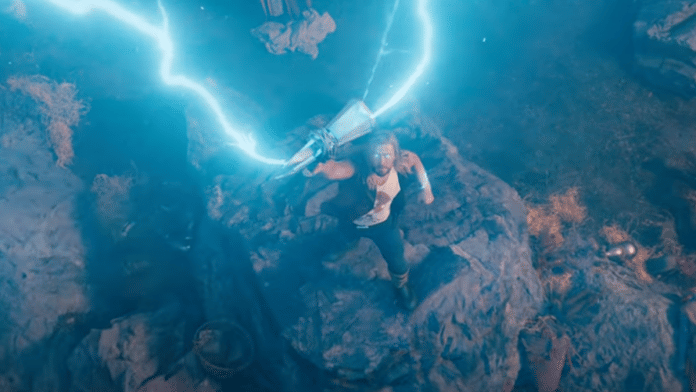Thor: Love and Thunder had the rare opportunity of exploring the relationship between God and man. The gods’ inability to prove worthy of their disciples’ faith could have been the core plot of the movie. Yet, scriptwriter Jennifer Kaytin Robinson and director Taika Waititi have made yet another movie on love. And there lies Thor’s mediocrity.
Christian Bale plays Gorr the God Butcher who goes on a rampage to kill all the gods in the universe after his own god fails him and lets his daughter die of thirst and starvation. Gorr goes looking for eternity — a realm that lies at the centre of the universe and grants anyone who reaches there one wish.
Thor and his team, including Mighty Thor aka Dr Jane Foster (Natalie Portman), Valkyrie (Tessa Thompson) and Korg (voiced by Waititi) must stop the God Butcher. How Jane Forster became Mighty Thor was one of the most convincing origin stories in the Marvel Cinematic Universe. The movie, despite its shortcomings, does justice to the romance of Thor and Jane, which had been completely erased from MCU.
The Thor we see in this instalment is a much more powerful and aware ‘God of Thunder’ who focuses less on his hammers — Stormbreaker and Mjolnir — this time and more on his thunderous rage. At this stage of the MCU, our heroes are getting stronger and surer of themselves, which is always great to watch.
One has to say that Love and Thunder is among the better movies in the Thor saga. But Ragnarok (2017), the movie that can be credited for reviving the series, set such high standards that one can’t help but leave the movie hall disappointed after watching Love and Thunder.
There are many ways in which the movie falls flat if its predecessor is kept in mind. Cate Blanchett as Hella was, by far, the scariest villain in MCU. Christian Bale’s follow-up act as the God Butcher falls short of invoking the horror one felt watching Hella cast wrath upon Asgard. Bale’s talent is largely wasted, and one can only wish he had a greater, better role to play in the MCU than a one-off Voldemort-ish villain.
Also read: Anya’s Tutorial is better than Bollywood horror. But has same-old haunted house, voodoo dolls
Thor and humour
At the beginning of Love and Thunder, we’re introduced to a Thor who’s somewhat recovering from his depression after Asgard fell into pieces and he lost people dear to him, including Loki. The scruffy, pot-bellied Thor is now seen working out and meditating. But as Peter Quill or ‘Star-Lord’ (Chris Pratt) points out, it’s evident that Thor is still feeling empty.
That’s the journey we’re going to be on with Thor this time. The language of this movie is much more humorous than the very serious tones that we have come to identify Thor with in the first two instalments.
But perhaps Love and Thunder terribly missed Loki whose mischievous presence complimented Thor’s misgivings and misadventures, and thus brought humour effortlessly into the plot. This time around, some jokes seemed forced.
This is where Marvel misses out. They made the look, feel, and writing of Love and Thunder so Guardians of the Galaxy-ish that one forgets which film they’re actually watching. And if the Guardians had to be in the film for no more than five minutes and aren’t going to drive the plot forward in any way possible, then why are they there at all? It made no sense.
The tattoos of ‘RIP Loki’ and broken hearts on Thor’s back, though, are great additions. Russell Crowe as Zeus, who’s more of a performative diva than a god, is a delight to watch too. He’ll most probably return in the next instalment in the saga, and one genuinely can’t wait. The tension between Thor’s hammers is hilarious. Thor calls for Mjolnir, his old love while his current one, Stormbreaker, gets more and more insecure. The sentient hammers are probably the best part of the film.
(Edited by Humra Laeeq)






